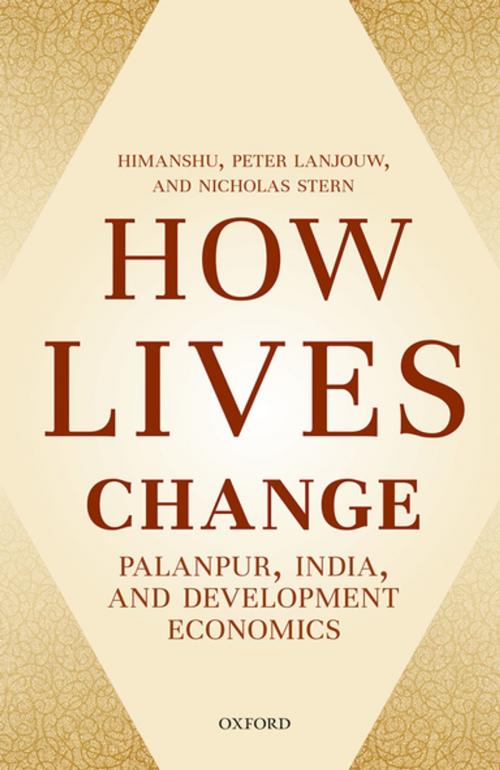How Lives Change
Palanpur, India, and Development Economics
Business & Finance, Economics, Economic Development, Nonfiction, Social & Cultural Studies, Political Science| Author: | Himanshu, Peter Lanjouw, Nicholas Stern | ISBN: | 9780192529077 |
| Publisher: | OUP Oxford | Publication: | August 2, 2018 |
| Imprint: | OUP Oxford | Language: | English |
| Author: | Himanshu, Peter Lanjouw, Nicholas Stern |
| ISBN: | 9780192529077 |
| Publisher: | OUP Oxford |
| Publication: | August 2, 2018 |
| Imprint: | OUP Oxford |
| Language: | English |
Development economics is about understanding how and why lives change. How Lives Change: Palanpur, India, and Development Economics studies a single village in a crucially important country to illuminate the drivers of these changes, why some people do better or worse than others, and what influences mobility and inequality. How Lives Change draws on seven decades of detailed data collection by a team of dedicated development economists to describe the evolution of Palanpur's economy, its society, and its politics. The emerging story of integration of the village economy with the outside world is placed against the backdrop of a rapidly transforming India and, in turn, helps to understand the transformation. It puts development economics into practice to assess its performance and potential in a unique and powerful way to show how the development of one village since India's independence can be set in the context of the entire country's story. How Lives Change sets out the role of, and scope for, public policy in shaping the lives of individuals. It describes how changes in Palanpur's economy since the late 1950s were initially driven by the advance of agriculture through land reforms, the expansion of irrigation and the introduction of "green revolution" technologies. Since the mid-1980s, newly emerging off-farm opportunities in nearby towns and outside agriculture became the key driver of growth and change, profoundly influencing poverty, income mobility, and inequality in Palanpur. Village institutions are shown to have evolved in subtle but clear ways over time, both shaping and being shaped by economic change. Individual entrepreneurship and initiative is found to play a critical role in driving and responding to the forces of change; and yet, against a backdrop of real economic growth and structural transformation, this book shows that human development outcomes have shown only weak progress and remain stubbornly resistant to change.
Development economics is about understanding how and why lives change. How Lives Change: Palanpur, India, and Development Economics studies a single village in a crucially important country to illuminate the drivers of these changes, why some people do better or worse than others, and what influences mobility and inequality. How Lives Change draws on seven decades of detailed data collection by a team of dedicated development economists to describe the evolution of Palanpur's economy, its society, and its politics. The emerging story of integration of the village economy with the outside world is placed against the backdrop of a rapidly transforming India and, in turn, helps to understand the transformation. It puts development economics into practice to assess its performance and potential in a unique and powerful way to show how the development of one village since India's independence can be set in the context of the entire country's story. How Lives Change sets out the role of, and scope for, public policy in shaping the lives of individuals. It describes how changes in Palanpur's economy since the late 1950s were initially driven by the advance of agriculture through land reforms, the expansion of irrigation and the introduction of "green revolution" technologies. Since the mid-1980s, newly emerging off-farm opportunities in nearby towns and outside agriculture became the key driver of growth and change, profoundly influencing poverty, income mobility, and inequality in Palanpur. Village institutions are shown to have evolved in subtle but clear ways over time, both shaping and being shaped by economic change. Individual entrepreneurship and initiative is found to play a critical role in driving and responding to the forces of change; and yet, against a backdrop of real economic growth and structural transformation, this book shows that human development outcomes have shown only weak progress and remain stubbornly resistant to change.















